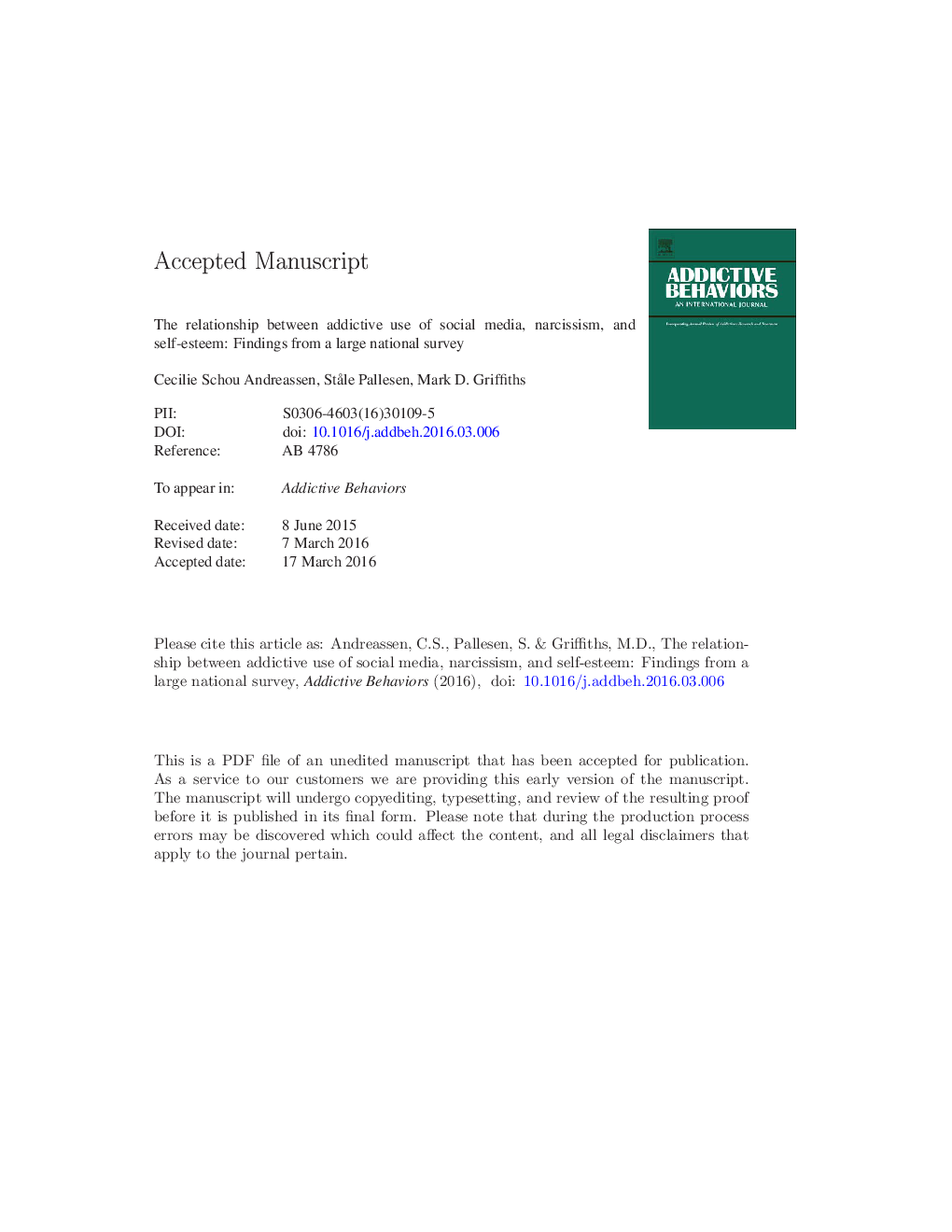ترجمه فارسی عنوان مقاله
رابطه بین استفاده اعتیادآور از رسانه های اجتماعی، اعتیاد به اعتیاد و عزت نفس: یافته های یک نظرسنجی ملی بزرگ
عنوان انگلیسی
The relationship between addictive use of social media, narcissism, and self-esteem: Findings from a large national survey
| کد مقاله | سال انتشار | تعداد صفحات مقاله انگلیسی |
|---|---|---|
| 115392 | 2017 | 28 صفحه PDF |
منبع

Publisher : Elsevier - Science Direct (الزویر - ساینس دایرکت)
Journal : Addictive Behaviors, Volume 64, January 2017, Pages 287-293
ترجمه کلمات کلیدی
اعتیاد رفتاری، اعتیاد آنلاین شبکه اجتماعی، خودشیفتگی، اعتماد به نفس، شخصیت،
کلمات کلیدی انگلیسی
Behavioral addiction; Online social networking addiction; Narcissism; Self-esteem; Personality;

